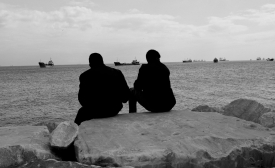soft power
As India enters its 70th year of independence and its status on the world stage grows, its position within Asia becomes more critical. It's high time India consciously, calculatingly and coordinately uses its ample soft power to its advantage. One way is to open a global chain of "Gandhi Centers."

Turkey gives a great deal of foreign aid, but no one seems to notice...
India’s vibrant diaspora could become a core component of foreign policy initiatives. It could be a vehicle of our soft power, writes NK Singh. [...] The initiatives of the ministry of overseas Indian affairs need innovation and restructuring.
Targeting China’s international reputation is a good place to start. Despite popular misconceptions, Beijing is actually extremely concerned about maintaining a positive image. It knows that being viewed as a pariah could bolster international moves to counter its strategic, political and economic weight.
Let’s move away from these products and focus on how soft power actually incorporates ethical standards of behavior and important societal norms that resonate with others in the world. These fundamental norms should not surprise us: liberal ideas of individualism, economic incentives, democracy and human rights. Implementing these liberal values over many decades has led the U.S. to our dominant global economic and political position.
Two musk oxen for a pair of giant pandas. Who would make that trade? The Chinese did, when President Richard M. Nixon was on his world-changing trip to China in 1972. [...] Panda diplomacy has had a long history, but before Ling-Ling and Hsing-Hsing arrived in the United States (not long after Nixon returned from his trip), there hadn’t been a giant panda here for more than 20 years.
A comprehensive new ranking of countries labelled “Soft Power 30” by a London-based political consultancy, Portland Communications, carries a rude awakening for India. We are nowhere when it comes to being attractive and influential in the world, falling outside the top 30 nations for universally liked culture, widely admired political values and positively engaged foreign policy.







